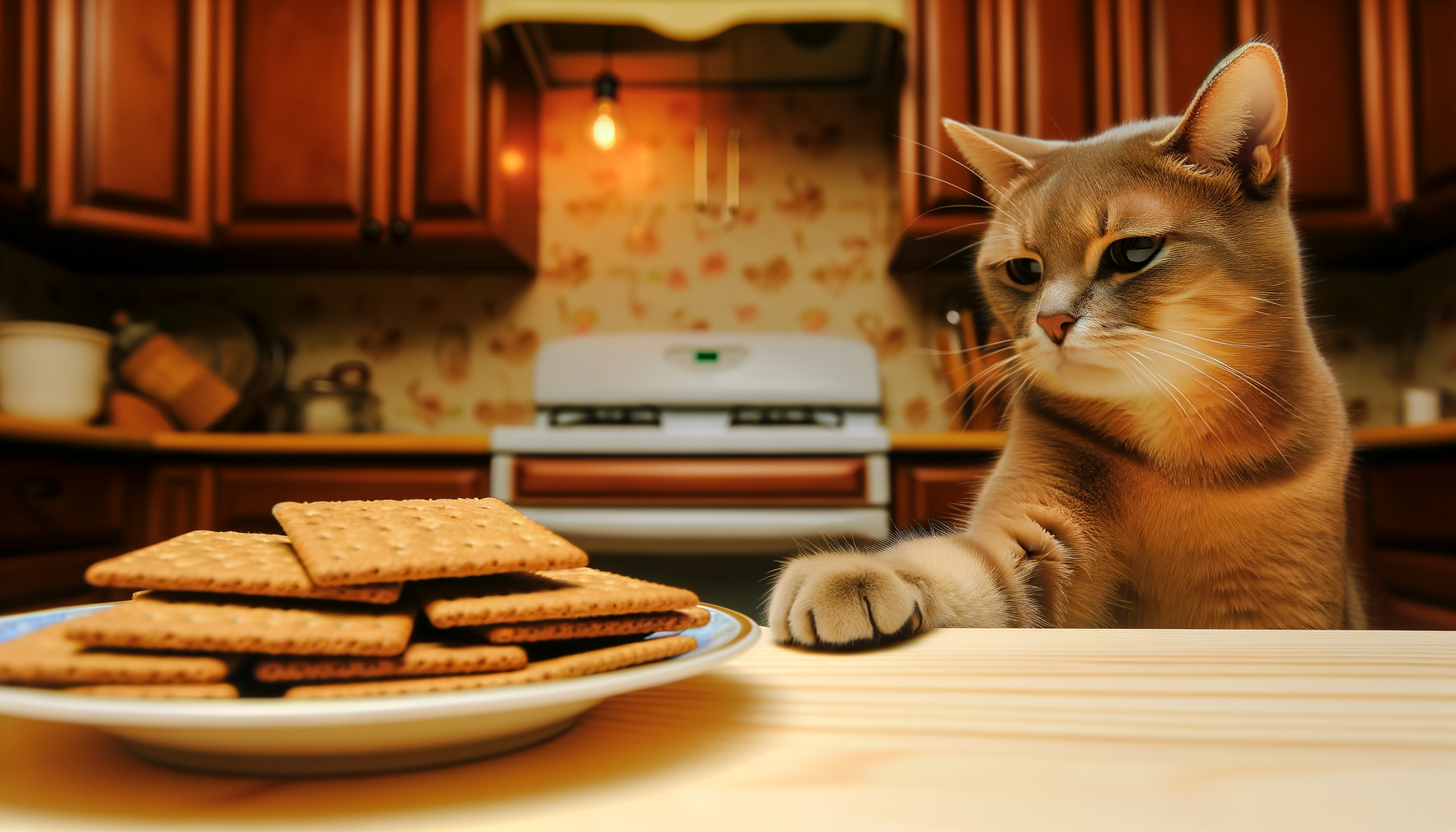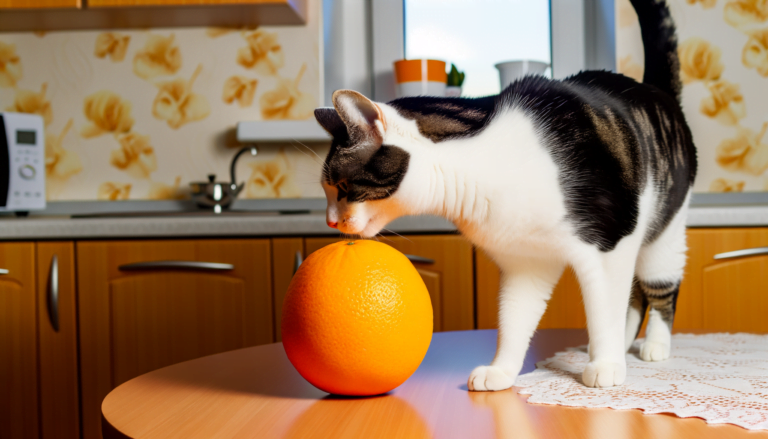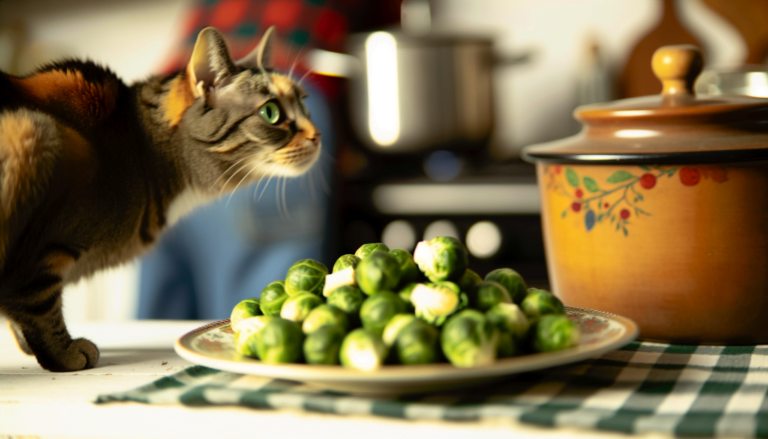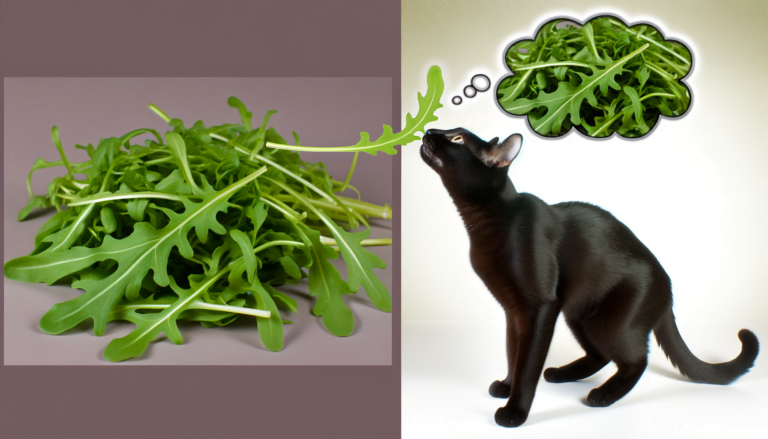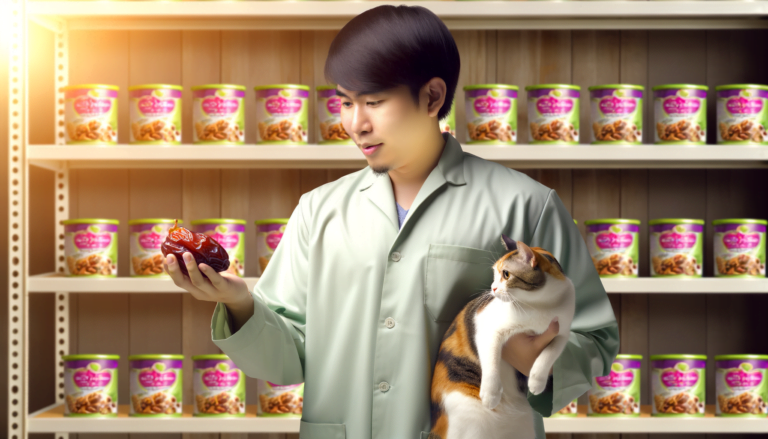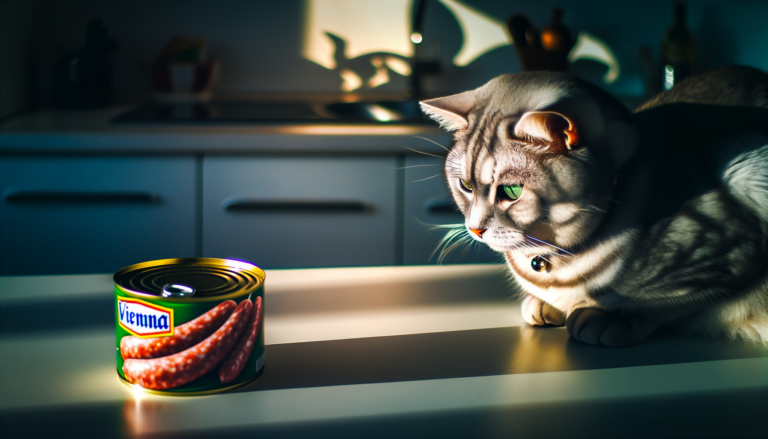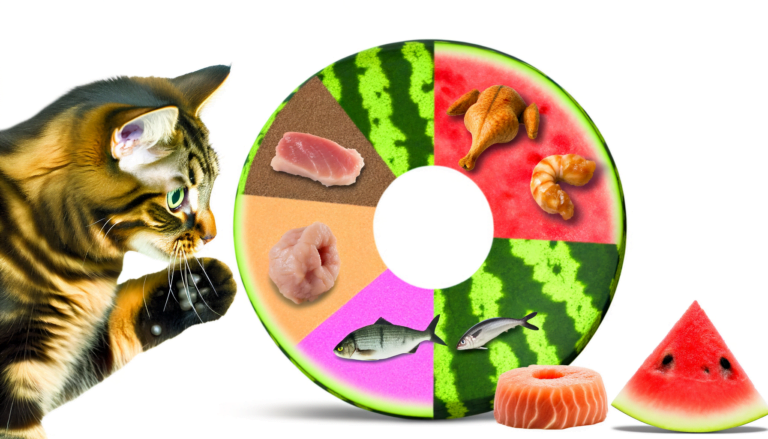Decoding Feline Diets: Can Cats Safely Munch on Graham Crackers?
While cats can technically consume graham crackers, it’s not an advisable choice as part of a regular diet. Cats are obligate carnivores, which means they require a diet heavy in proteins typically derived from meats. Graham crackers, although not inherently harmful to cats, contain a significant amount of sugars and grains which are hard for a cat’s digestive system to process and offer little nutritional value. Excess sugar can even lead to obesity or diabetes in cats. Thus, while an occasional small piece of a graham cracker might not pose an immediate threat to a cat’s health, it’s not an optimal food choice for them.
Understanding Cats’ Dietary Preferences and Needs
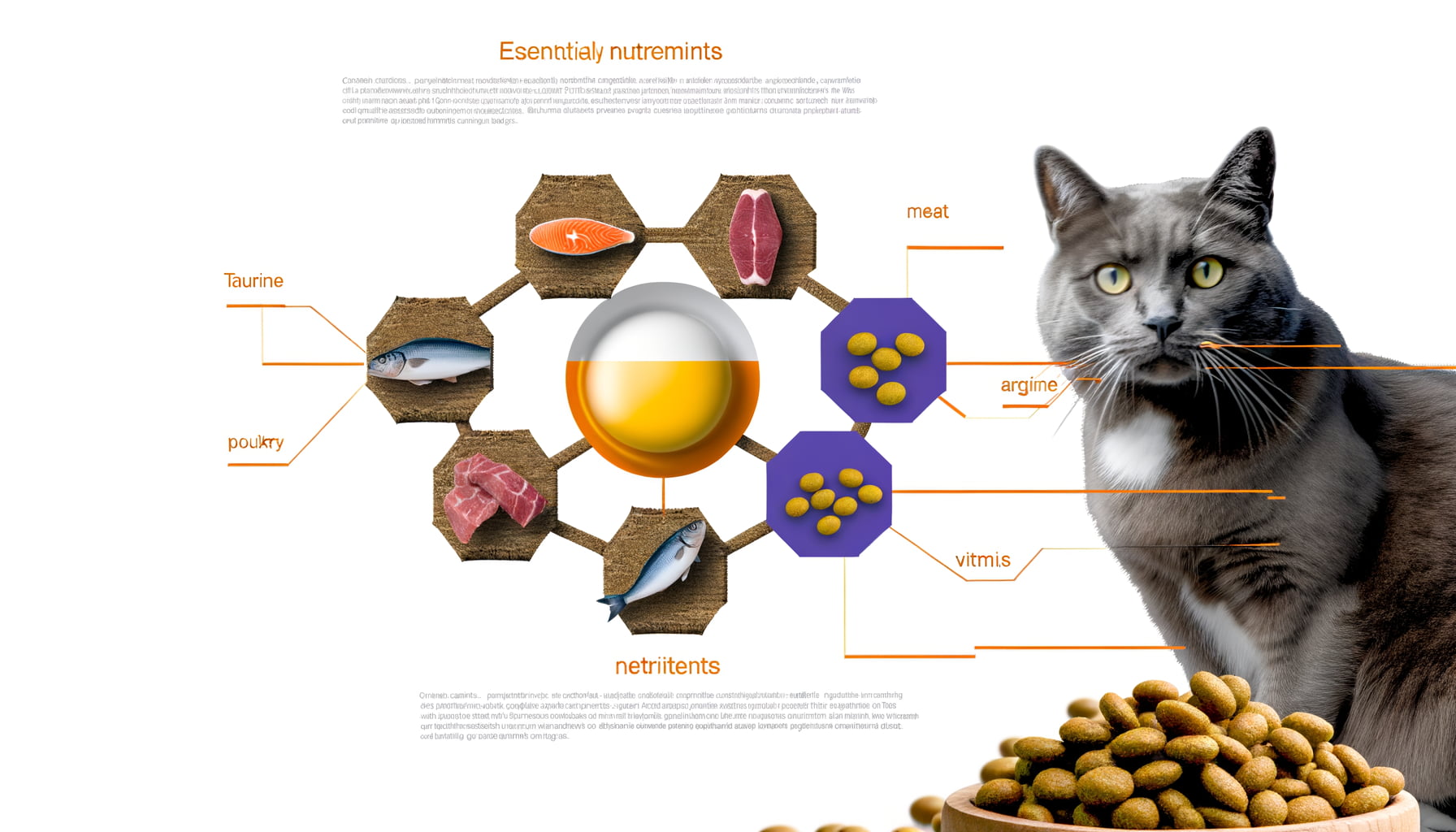
Cats, as obligate carnivores, require a diet predominantly of meat. They derive their nutrients best from animal-based sources, unlike their human companions. Their dietary needs cater to a high protein intake, which is imperative for their overall health and well-being. Taurine, an essential amino acid for cats, is only abundantly found in meat sources, thus highlighting the carnivorous predilection of these creatures.
In terms of dietary preferences, the exposure and habituation of cats from a juvenile stage play a substantial role. It is often observed that cats are discerning eaters, frequently showing an inclination towards foods they were exposed to at an early life stage. However, this does not negate the fact that their nutritional needs must be fulfilled first and foremost.
Therefore, it is highly recommended to consult a feline nutrition expert or a vet when contemplating changes to a cat’s diet, particularly the inclusion of human foods. One must remember that the dietary requirements of cats are distinct and differ significantly from humans. Even though items like graham crackers might seem harmless, they may not essentially fall in line with a cat’s dietary needs.
The Impact of Human Food on Cats’ Health
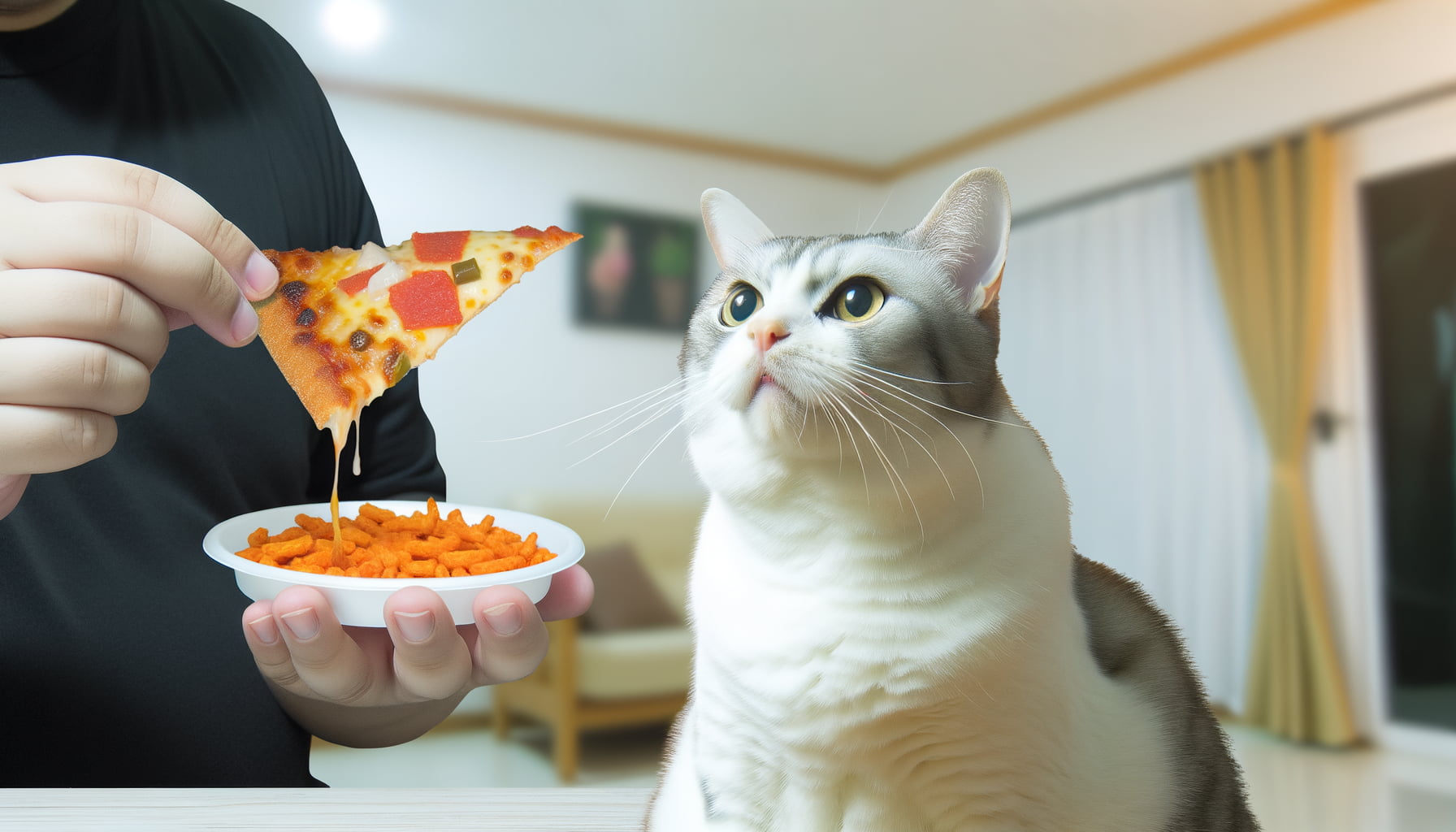
There’s a perplexity surrounding the matter of human food influencing the health of felines. Although sharing a few tidbits from your plate seems harmless, it risks their well-being greatly. Cats have unique dietary needs different from that of humans. As obligate carnivores, they require taurine, an essential amino acid predominantly found in animal-based food sources.
A common misconception is that domestic cats can consume the same foods as their human companions, leading to potential dietary issues. Feeding them human foods, like graham crackers, could disrupt their nutritional balance. This could potentially instigate health complications, such as obesity, diabetes, and pancreatic disorders. Cats thrive on a protein-rich diet, and incorporating human food into their regimen can lead to burstiness in their diet, causing nutritional imbalances.
Thus, the impact of human food on a cat’s health can range from benign to detrimental, depending on intake. While an occasional fragment of graham cracker might be benign, it’s of utmost importance to ensure our feline friends get the correct balance of nutrients from their diet. Always consult a vet for dietary advice customized to your cat’s specific needs and remember, moderation is key.
Graham Crackers: Nutritional Value and Potential Risks for Cats
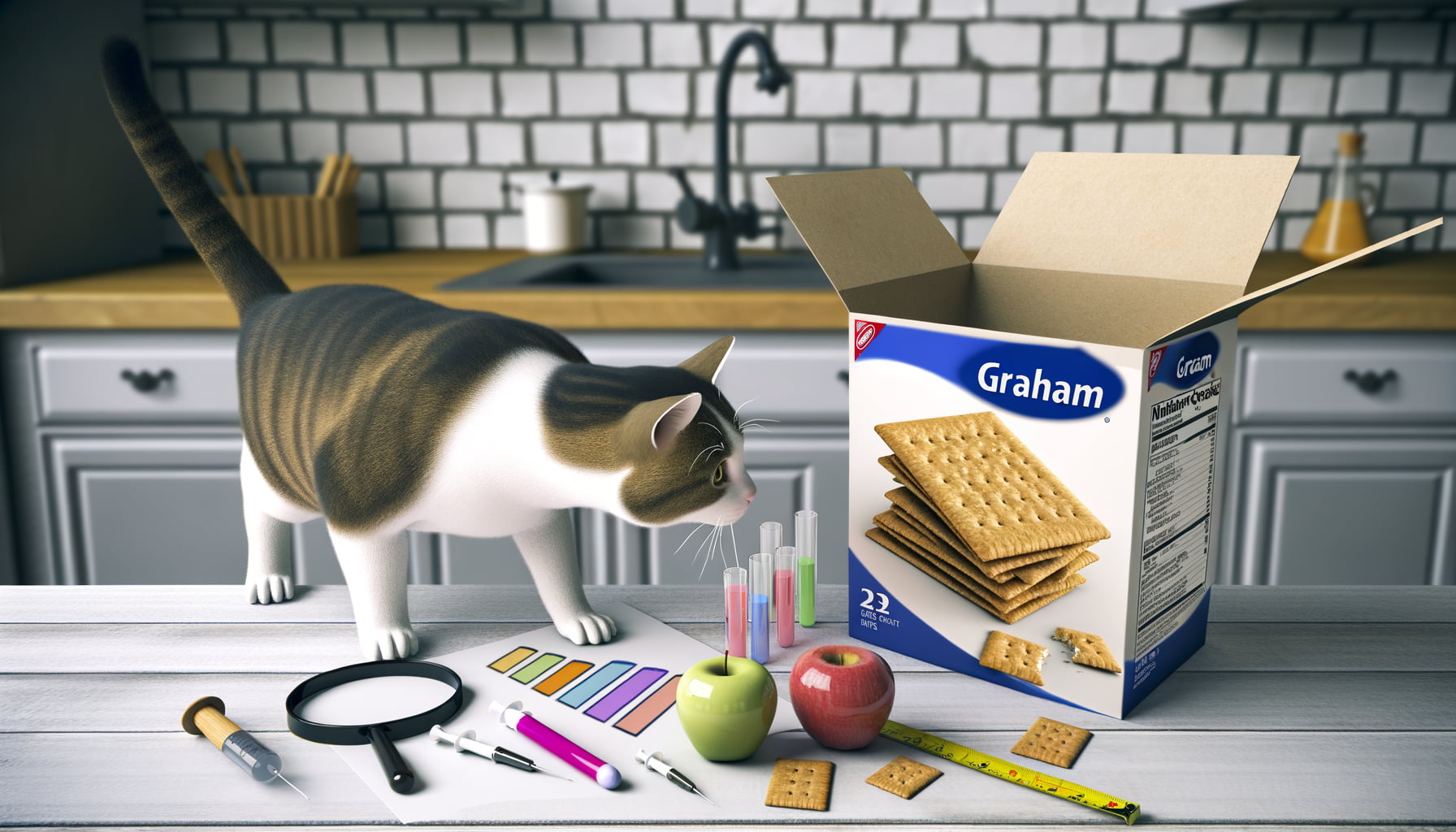
Within the context of feline dietary preferences, graham crackers serve as an interesting study. It’s quite crucial to understand that graham crackers harbor a nutritional profile that’s less than ideal for the cat’s system. Primarily composed of whole wheat flour, honey, and shortening, these sweet treats skew heavily towards carbohydrates, a nutrient category cats require sparingly.
It’s the carnivorous nature of felines that causes this dilemma, as they thrive on proteins and fats instead of sugars. The sugars found in graham crackers may lead to issues of digestive upset and can contribute to unwanted weight gain or more severe health concerns like diabetes. Furthermore, while the honey element might appear harmless, it edges towards the side of potential risk, as it provokes a spike in blood sugar levels, which can be harmful to cats.
Beyond these nutritional considerations, the risk of potential allergens, such as wheat, or harmful additives used in the production of graham crackers, is also a concern. The intricate digestive system in cats, while robust, is not designed to handle the perplexity of human foods like these. Thus, the feeding of graham crackers to felines is something to approach with caution, always prioritizing their health and wellbeing above all else.
Safe Treat Alternatives to Graham Crackers for Cats
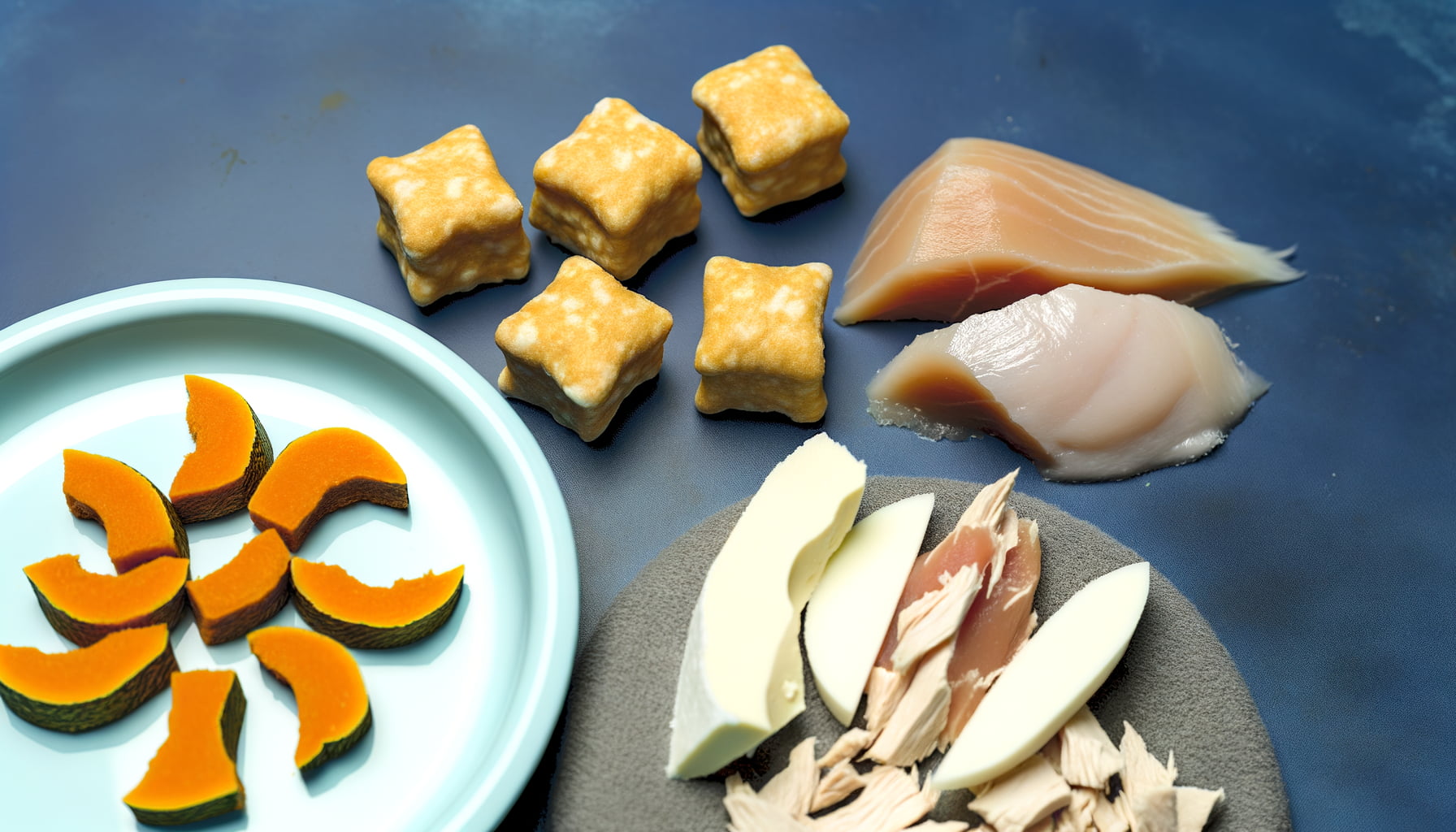
While the appeal of sharing your favorite snacks with your feline friend can be tempting, it’s essential to be mindful of what is safe and nutritious for them. Cats have specific dietary requirements, and their bodies aren’t designed for digesting many of the foods we humans enjoy. Graham crackers, despite their relatively benign reputation among human foods, aren’t a suitable snack option for our furry companions.
In terms of safe treat alternatives, lean meats such as chicken, turkey, or fish are a nutritious choice. These are high in protein, a crucial component of cats’ diet, and lacking in unnecessary sugars and additives. It’s recommended to cook these meats thoroughly and ensure they are unseasoned; many common spices can be harmful to cats.
Additionally, commercially available cat treats are specifically formulated for feline dietary needs. While these should still be given in moderation, they can be a handy and safe alternative to human food. Although cats might exhibit interest in our food, providing them a diet tailored to their needs is the best way to keep them healthy and satisfied.
Conclusion
Ultimately, feline diets should prioritize nutrition and safety above all else. While graham crackers may seem like a harmless snack, they lack the essential nutrients that cats need to thrive. It’s important to stick to a diet specifically formulated for our feline friends to ensure their health and well-being.
When it comes to what our cats eat, it’s best to err on the side of caution and consult with a veterinarian to determine the best diet for our furry companions. While it may be tempting to share human treats with our pets, their unique dietary needs should always take precedence for their overall health and happiness.
